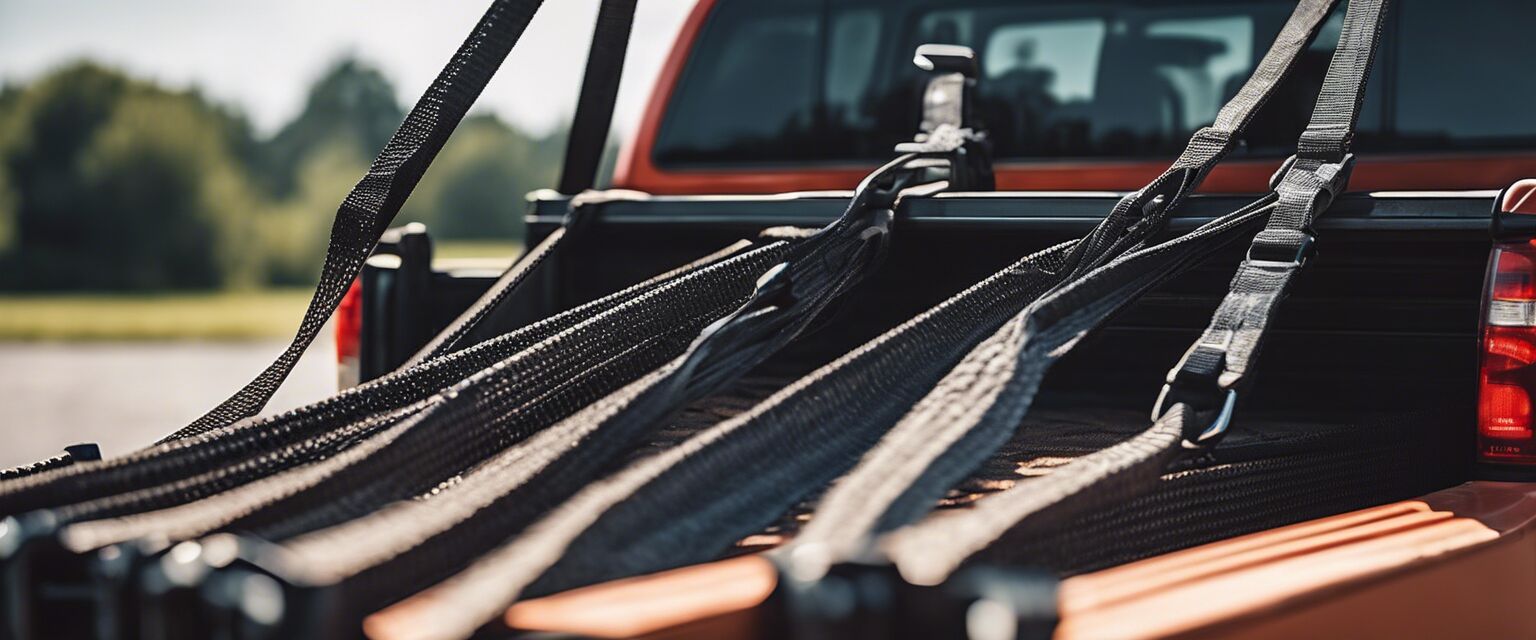
Safety tips for tie down straps
- Always inspect your tie down straps before use.
- Use the right type of strap for your specific needs.
- Ensure that the load is evenly distributed.
- Do not exceed the weight capacity of the straps.
- Store your straps properly to prolong their lifespan.
Using tie down straps is essential for securing loads in various scenarios, be it transporting goods or storing items. However, safety should always be your top priority. This article provides guidelines and tips on how to safely utilize tie down straps, ensuring that your loads remain secure and accidents are avoided.
Understanding tie down straps
There are different types of tie down straps used based on your needs, including:
Common types of tie down straps
| Type | Description | Best Use |
|---|---|---|
| Bungee Cords | Elastic cords with hooks on both ends. | Lightweight cargo. |
| Cam Buckle Straps | Secure loads using a cam mechanism. | Monitoring smaller loads. |
| Ratchet Straps | Use a ratchet to tighten the strap for heavy loads. | Securing heavy equipment. |
| Lashing Straps | Flat straps that can be tightened around loads. | General purpose use. |

Safety tips for using tie down straps
- Inspect before use: Examine the straps for any damages, frays, or breaks.
- Right strap for the right job: Choose a strap that can handle the weight of your load.
- Load distribution: Ensure that the load is balanced to avoid slippage.
- Weight capacity: Never exceed the recommended weight capacity of your straps.
- Weather conditions: Be mindful of weather conditions which can affect the integrity of the straps.
Beginner's guide: How to use tie down straps safely
- Select appropriate straps for your load.
- Secure one end of the strap to an anchor point.
- Wrap the strap around your load, ensuring it is tight but not over-stretched.
- Attach the other end to a second anchor point.
- Test the security of the load by gently tugging on the straps.
Key factors to consider
When using tie down straps, consider the following:
| Factor | Impact |
|---|---|
| Material Type | Affects durability and strength. |
| Length of Strap | Must fit your cargo appropriately. |
| Anchor Points | Ensure quality and durability of anchor points you use. |

Proper storage of tie down straps
To prolong the life of your tie down straps, consider these storage tips:
- Store in a dry place away from direct sunlight.
- Roll straps instead of folding them to avoid creases.
- Use a waterproof container for extra protection.
Pros and cons of tie down straps
Pros
- Versatile for different loads.
- Easy to use and adjust.
- Highly durable when used properly.
- Various types available for specific needs.
Cons
- Can wear out over time if not maintained.
- Improper use can lead to accidents.
- Some types may not be suitable for heavy loads.
Conclusion
Using tie down straps effectively and safely is critical for ensuring that your loads remain secure during transport. By following the above safety tips and guidelines, you can prevent accidents and ensure your cargo arrives safely. Remember to inspect your straps before each use and store them properly to maximize their lifespan.
